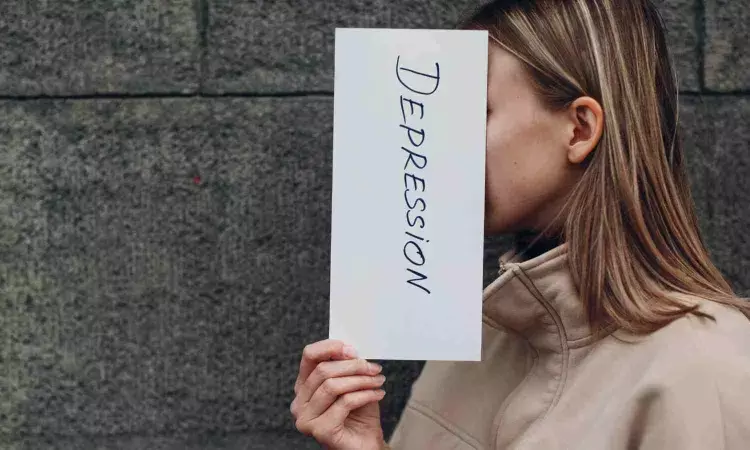- Home
- Medical news & Guidelines
- Anesthesiology
- Cardiology and CTVS
- Critical Care
- Dentistry
- Dermatology
- Diabetes and Endocrinology
- ENT
- Gastroenterology
- Medicine
- Nephrology
- Neurology
- Obstretics-Gynaecology
- Oncology
- Ophthalmology
- Orthopaedics
- Pediatrics-Neonatology
- Psychiatry
- Pulmonology
- Radiology
- Surgery
- Urology
- Laboratory Medicine
- Diet
- Nursing
- Paramedical
- Physiotherapy
- Health news
- Fact Check
- Bone Health Fact Check
- Brain Health Fact Check
- Cancer Related Fact Check
- Child Care Fact Check
- Dental and oral health fact check
- Diabetes and metabolic health fact check
- Diet and Nutrition Fact Check
- Eye and ENT Care Fact Check
- Fitness fact check
- Gut health fact check
- Heart health fact check
- Kidney health fact check
- Medical education fact check
- Men's health fact check
- Respiratory fact check
- Skin and hair care fact check
- Vaccine and Immunization fact check
- Women's health fact check
- AYUSH
- State News
- Andaman and Nicobar Islands
- Andhra Pradesh
- Arunachal Pradesh
- Assam
- Bihar
- Chandigarh
- Chattisgarh
- Dadra and Nagar Haveli
- Daman and Diu
- Delhi
- Goa
- Gujarat
- Haryana
- Himachal Pradesh
- Jammu & Kashmir
- Jharkhand
- Karnataka
- Kerala
- Ladakh
- Lakshadweep
- Madhya Pradesh
- Maharashtra
- Manipur
- Meghalaya
- Mizoram
- Nagaland
- Odisha
- Puducherry
- Punjab
- Rajasthan
- Sikkim
- Tamil Nadu
- Telangana
- Tripura
- Uttar Pradesh
- Uttrakhand
- West Bengal
- Medical Education
- Industry
Study suggests gallstones to be associated with increased depression risk

A recent study has identified a significant link between gallstones and depressive symptoms in adults by highlighting a previously unclear relationship. The study aimed to investigate the association between gallstone disease and mental health, particularly focusing on depression and the findings were recently published in the Psychology Research and Behavior Management journal. By using data from the National Health and Nutrition Examination Survey (NHANES) conducted between 2017 and March 2020, the study offered strong evidence that gallstones may play a role in increasing depression risk.
This cross-sectional analysis initially assessed thousands of participants in the NHANES database. After screening, they identified 835 matched pairs of adults (some with gallstones and others without) through a statistical technique called propensity score matching (PSM). This matching process ensured that both groups were comparable in factors like age, lifestyle, and other health conditions, isolating the effect of gallstones on depressive symptoms. The study then applied a multivariate logistic regression model to adjust for additional variables which yielded more nuanced understanding of the association between gallstones and depression.
The findings suggest that adults with gallstones had an 82% higher likelihood of experiencing depressive symptoms compared to the individuals without gallstones. The data showed that participants with gallstones had an odds ratio (OR) of 1.821 (with a confidence interval of 1.181 to 2.808) and a statistically significant p-value of 0.007 which indicated a strong association. These findings were robust even after accounting for multiple health and demographic factors.
To determine if gallstones might actually cause depression, the study utilized Mendelian randomization (MR) which used genetic data to help establish causal links between gallstones and depression. With the data from genome-wide association studies, this research performed both univariate and multivariate MR analyses. These analyses suggested that gallstones could indeed causally contribute to depressive symptoms, as shown by a forward univariate MR analysis with an odds ratio of 1.04 and a p-value of 0.002, along with a multivariate MR analysis with an odds ratio of 1.03 and a p-value of 0.009. Also, there was no evidence supporting reverse causation which meant that depression did not appear to lead to gallstones.
The findings underlined the importance of mental health screenings for patients diagnosed with gallstones. Early detection and treatment of depressive symptoms could significantly improve quality of life for these individuals by reducing the mental health burden on both patients and the healthcare system.
Source:
Ma, R., Li, W., Peng, Q., Ren, A., Zhao, L., Li, J., & Luo, S. (2024). Association Between Gallstones and Depressive Symptoms: Results from NHANES and Mendelian Randomization Study. In Psychology Research and Behavior Management: Vol. Volume 17 (pp. 3659–3676). Informa UK Limited. https://doi.org/10.2147/prbm.s477449
Neuroscience Masters graduate
Jacinthlyn Sylvia, a Neuroscience Master's graduate from Chennai has worked extensively in deciphering the neurobiology of cognition and motor control in aging. She also has spread-out exposure to Neurosurgery from her Bachelor’s. She is currently involved in active Neuro-Oncology research. She is an upcoming neuroscientist with a fiery passion for writing. Her news cover at Medical Dialogues feature recent discoveries and updates from the healthcare and biomedical research fields. She can be reached at editorial@medicaldialogues.in
Dr Kamal Kant Kohli-MBBS, DTCD- a chest specialist with more than 30 years of practice and a flair for writing clinical articles, Dr Kamal Kant Kohli joined Medical Dialogues as a Chief Editor of Medical News. Besides writing articles, as an editor, he proofreads and verifies all the medical content published on Medical Dialogues including those coming from journals, studies,medical conferences,guidelines etc. Email: drkohli@medicaldialogues.in. Contact no. 011-43720751


